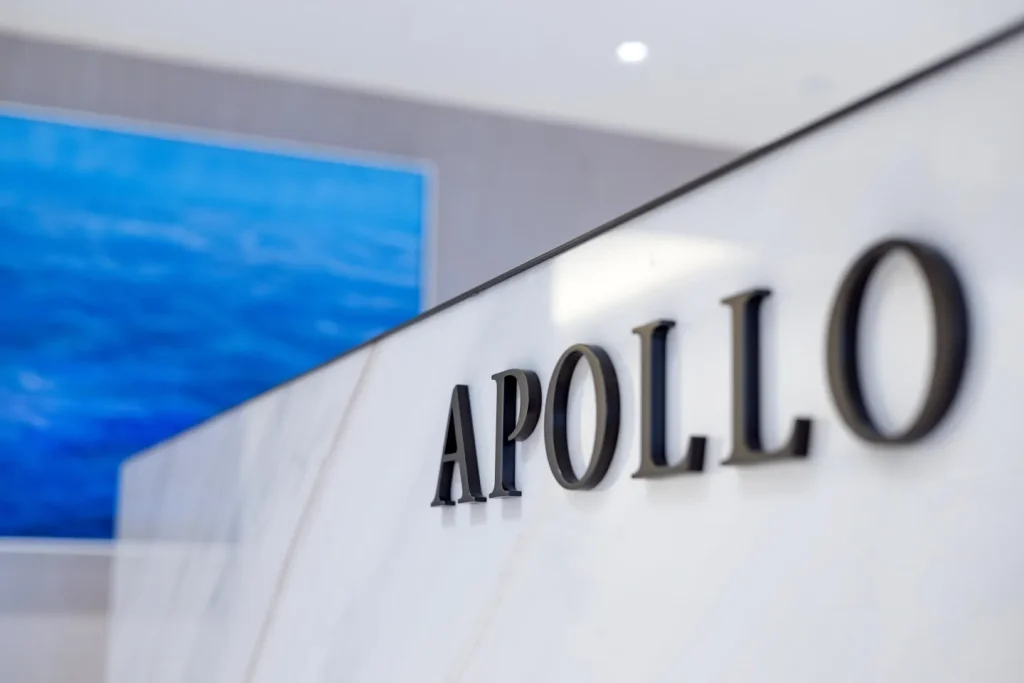• $6.5 billion investment for a 50% stake in the world’s largest offshore wind project
• Project to deliver 2.9 GW of renewable power, enough for over 3 million UK homes
• Strengthens UK energy security and supports national net-zero targets
Landmark Partnership in the North Sea
New York-based Apollo Funds will invest $6.5 billion for a 50% stake in Ørsted’s Hornsea 3, the world’s largest offshore wind project currently under development in the North Sea. The deal marks one of the most significant private infrastructure commitments in Europe’s energy transition this year and positions Apollo as a long-term institutional partner in the decarbonization of the UK power system.
Under the agreement, Apollo-managed funds will co-own the project through a joint venture with Ørsted and contribute to half of the remaining construction costs. Once completed, Hornsea 3 will have a generation capacity of 2.9 GW—capable of supplying renewable power to more than three million UK households.
Ørsted will retain responsibility for constructing and operating the facility under a full-scope Engineering, Procurement, and Construction (EPC) contract, as well as handling route-to-market power trading and long-term maintenance.
Scaled Capital for Energy Security and Transition
Apollo Infrastructure Partner Adam Petrie said the firm’s investment reinforces its commitment to scaling essential clean energy infrastructure in mature markets. “Ørsted is a global leader in offshore wind, and Hornsea 3 is its most significant project yet,” he said. “This investment promotes energy security and supports the UK’s net-zero ambitions.”
Ørsted’s Group CFO Trond Westlie noted that the transaction advances the company’s capital recycling strategy: “The divestment is a cornerstone of our business plan. Apollo brings scaled capital and infrastructure expertise to one of the UK’s most important renewable projects.”


The joint venture illustrates a growing trend of institutional capital partnering with industrial developers to manage the financial burden of large-scale energy transition projects. Investors are increasingly structuring long-term equity and debt financing to support complex, capital-intensive assets—particularly as governments tighten fiscal policies and reduce direct subsidies.
RELATED ARTICLE: Apollo Launches ACT Equity ELTIF for Clean Energy Investments
Financing Consortium and Co-Investors
The Hornsea 3 financing is being underwritten by a syndicate of leading financial institutions including BNP Paribas, ING Bank, Lloyds, and RBC Capital Markets. Apollo-managed entities are leading the senior financing. Co-investors include Canadian pension funds La Caisse (formerly CDPQ) and PSP Investments, both participating across equity and debt components.
Apollo expects to deploy roughly $3.25 billion at closing, with the remaining investment scheduled as the project reaches key construction milestones over the next several years. Regulatory approvals are expected before the end of 2025.
The transaction demonstrates Apollo’s evolution from private equity into a diversified infrastructure investor. Recent European commitments include a €3.2 billion investment to expand Germany’s electricity grid, a £4.5 billion financing package for EDF’s Hinkley Point C nuclear power plant, and over $4.5 billion in strategic energy infrastructure investments with BP, including stakes in the TANAP and TAP pipelines.
Strategic Implications for the UK and Investors
Hornsea 3 extends the UK’s position as a global leader in offshore wind capacity, with the North Sea emerging as the epicentre of Europe’s renewable energy buildout. The project supports the UK’s target to deliver 50 GW of offshore wind by 2030 and contributes to stabilising long-term energy supply amid volatility in global gas markets.
For institutional investors, the project highlights a broader shift toward long-duration, stable-yield infrastructure linked to decarbonisation mandates. Leslie Mapondera, Apollo Partner and Co-Head of European Credit, said, “This transaction represents our focus on energy transition, digital infrastructure, and other strategic priorities where Apollo Fund capital can deliver both impact and returns.”
Legal counsel for Apollo Funds is being provided by Linklaters LLP, with RBC Capital Markets acting as financial advisor. Lenders are represented by Paul, Weiss, Rifkind, Wharton & Garrison LLP.
Global Context
The Hornsea 3 investment underscores how global capital is converging around large-scale renewable infrastructure as governments and utilities push to meet climate commitments under the Paris Agreement. With Europe leading in offshore wind capacity and investors demanding bankable ESG assets, such transactions illustrate how financial markets are becoming an essential engine for the next phase of global decarbonisation.
When operational, Hornsea 3 will not only reinforce the UK’s renewable energy backbone but also serve as a benchmark for private-public cooperation in achieving energy resilience at scale.
Follow ESG News on LinkedIn

